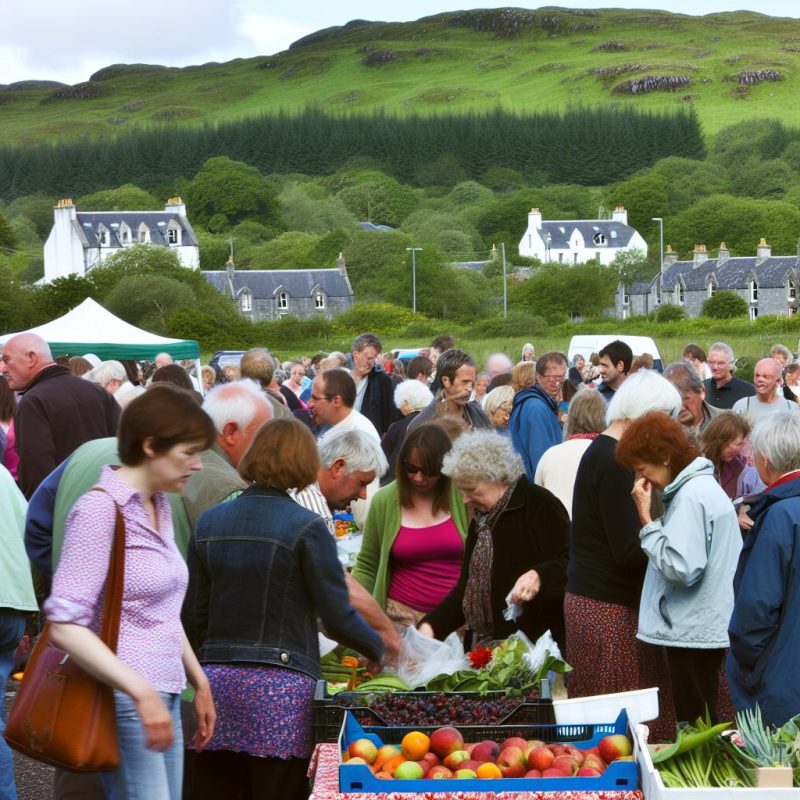Overview of Farmers’ Markets in Argyll
Argyll, situated in the picturesque west of Scotland, is celebrated not only for its breathtaking landscapes but also for its rich bounty of natural resources. The region’s farmers’ markets play a crucial role in both showcasing local produce and supporting sustainable practices. By providing a platform for local producers, these markets contribute significantly to the regional economy and promote environmentally friendly farming.
The Role of Farmers’ Markets
Farmers’ markets in Argyll act as vital conduits for community interaction and commercial exchange. They offer a unique opportunity for consumers to purchase products directly from the producers, ensuring a level of transparency that fosters trust in food sourcing. The direct sale model not only generates a fair economic return for the producers but also aligns with eco-conscious consumer habits by reducing the environmental impact associated with long-distance transportation of goods, thereby supporting low-carbon initiatives.
Local Produce Availability
Argyll’s unique climate and distinct geography provide a diverse spectrum of produce available throughout the year. This includes a variety of seasonal vegetables, fresh seafood, and premium meat products, each serving as a cornerstone at these vibrant markets.
Fresh Vegetables: Among the local favorites are potatoes, carrots, and an assortment of leafy greens. Thanks to the mild weather conditions, many of these vegetables are available for most of the year, ensuring a steady supply of fresh produce for market-goers.
Seafood: The region’s proximity to the coast blesses it with an abundance of seafood, including mussels, oysters, and a wide array of fish. The freshness of the catch is unmatched, and the quality benefits greatly from the short journey from sea to stall.
Meat and Dairy: Grass-fed beef and lamb stand out as prime examples of Argyll’s agricultural prowess, alongside artisanal cheeses that showcase local expertise and a commitment to quality.
The Importance of Seasonal Eating
Comprehending the seasonality of produce not only enhances the culinary experience but also underscores the importance of sustainable farming practices. Markets in Argyll offer a variety that reflects the natural growth cycles, ensuring consumers get the freshest foods while aligning consumption patterns with ecological principles.
Popular Farmers’ Markets in Argyll
Among the various farmers’ markets scattered across the region, Inveraray Farmers’ Market and Lochgilphead Market stand out. These markets are not merely venues for purchasing goods; they are vibrant spaces where local culture and community spirit are celebrated.
Inveraray Farmers’ Market
Nestled in the historically rich and picturesque town of Inveraray, this market features a plethora of products from different local vendors. It represents an ideal pit stop for those exploring the historic landmarks of the area. For more detailed information about their offerings and schedule, visit the Inveraray Farmers’ Market.
Lochgilphead Market
Renowned for its diverse assortment of handmade crafts and organic produce, Lochgilphead Market is a frequent favorite among locals and tourists. This market is held regularly, offering visitors a chance to consistently enjoy fresh, high-quality goods. For further details, see the Lochgilphead Market.
Supporting Local Producers
Patronizing farmers’ markets greatly supports local producers by providing them with a direct channel to market their goods. This system helps safeguard small farms and contributes to the preservation of the region’s rich agricultural diversity. Consumers benefit from the superior quality and freshness of local produce, while simultaneously playing a crucial role in sustaining Argyll’s economic framework and protecting its natural environment.
In summary, Argyll’s farmers’ markets offer something beyond mere fresh produce; they are vital components in upholding a sustainable food system, bolstering the economy, and fostering a sense of community. By supporting these markets, consumers actively participate in crafting a healthier and more sustainable future while embracing the rich tapestry of local culture and biodiversity.

